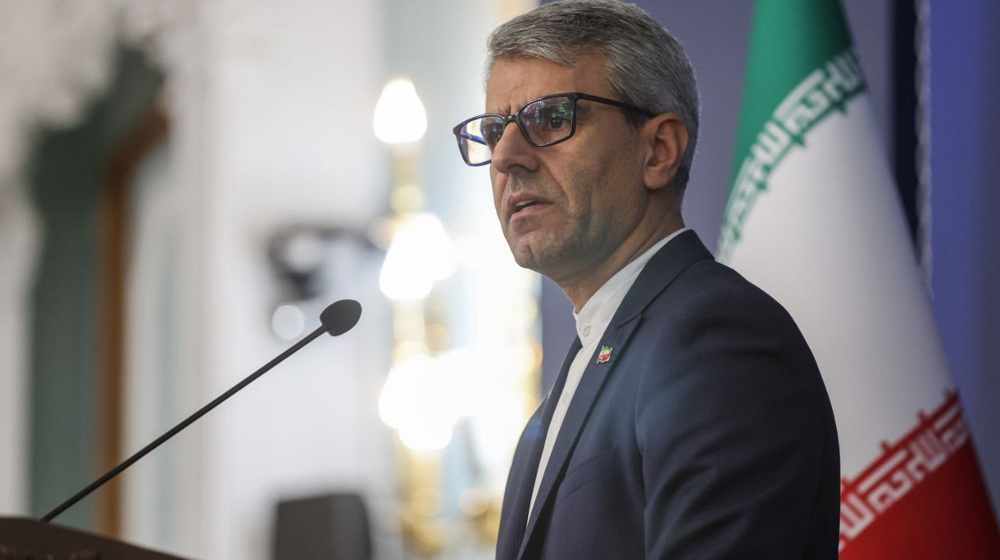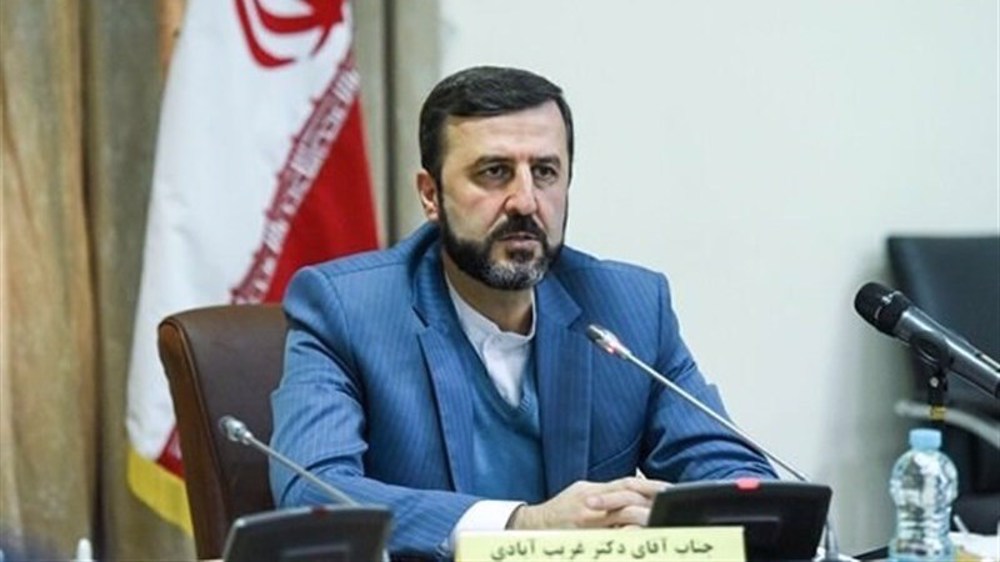IAEA Board of Governors meeting proved US isolation: Iran's Zarif
Iran's Foreign Minister Mohammad Javad Zarif says an emergency meeting held by the Board of Governors of the International Atomic Energy Agency (IAEA) in the Austrian capital, Vienna, proved the US isolation among member states more than ever before.
The emergency meeting of the 35-member board was held on Wednesday at the United States request to address Iran’s exceeding the limit set by a 2015 nuclear deal on its uranium enrichment level, notwithstanding the fact that Washington itself committed the biggest breach against the agreement last May by leaving it.
Iran surpassed the 3.67-percent level in reaction to the US withdrawal from the nuclear accord and also in order to prompt other deal partners to ensure Tehran’s business interests under the accord.
According to Iran’s Ambassador to the IAEA, Kazem Gharib-Abadi, the US had approached various delegations to have them join the request for the board meeting, but eventually had to make the request itself. The meeting ended without any conclusion on Washington’s alleged grievances.
On Thursday, Zarif spoke to the Lebanon-based Arabic-language al-Mayadeen television news network on the failure experienced by Washington, saying, “The US political isolation will soon lead to an economic one.”
Explaining about possible economic isolation of the US, Zarif said, “The Americans abuse the dollar’s power too much, and will gradually lose this advantage.”
Iran's top diplomat then added, “We are prepared to confront whatever threat [posed] by the US on whatever scale.”
After leaving the nuclear agreement, which is officially known as the Joint Comprehensive Plan of Action (JCPOA), the US re-imposed the sanctions that had been lifted under the deal. It has also threatened the countries keeping their trade with Iran with “secondary sanctions.”
This has prompted Iran’s various trade partners across the globe to try going around the sanctions by proposing non-dollar trade.
Britain, France, and Germany, the European signatories to the JCPOA, announced one such trade system in January. The system, officially known as the Instrument in Support of Trade Exchanges (INSTEX), began its first transactions late last month.
Seven more European states have committed to join the INSTEX, with Helga Schmid, secretary general of the European Union's External Action Service (EEAS), saying on Thursday that beyond the 10-strong European states, “more, also non-EU member states, will join" the trade instrument.
‘Iran region’s strongest state’
Elsewhere in his interview, Zarif reminded how the country successfully withstood a heavily Western-backed war by Iraq in 1980s.
“Today, we are the region’s most powerful country, while our military expenditure is small in comparison with that of Saudi Arabia and the United Arab Emirates,” he stated, referring to two of the US biggest regional allies, which are generously armed by Washington under huge military agreements.
Iran is not after tension and war, but "they would be met with a decisive response if they rose in confrontation," Zarif, however, stated.
He also reiterated that Iran’s countermeasures were “reversible” if the US sanctions were lifted and the Europeans honored their trade commitments to the Islamic Republic, welcoming whatever effort that would help the deal implementation.
VIDEO | Iran's Leader backs legitimate protests in address on Social Justice
VIDEO | Press TV's news headlines
Hamas: Israel escalating ceasefire violations in Gaza
Venezuela's government declares unwavering unity behind Maduro
VIDEO | Global outcry over Venezuela president abduction
Iran keeps wheat import subsidies despite cutting other food supports
Venezuelan military stands with acting president after US kidnapping of Maduro
VIDEO | Press TV's news headlines















 This makes it easy to access the Press TV website
This makes it easy to access the Press TV website